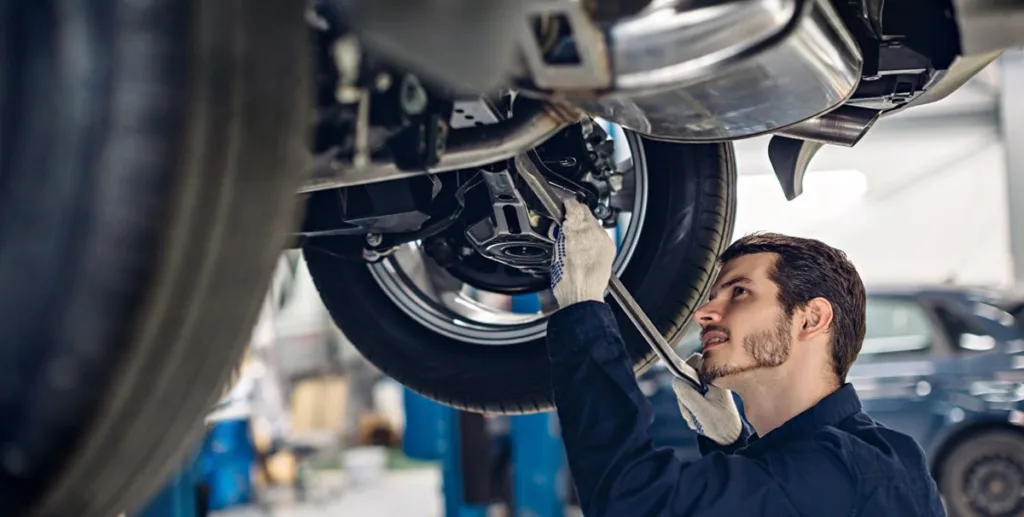All Categories
Featured

Recognizing the elements that influence the cost of these fixings is vital for lorry owners that want to be prepared for the unanticipated. From the kind of repair work needed to the make of your vehicle, several key elements can figure out exactly how much you'll pay for repairs.
- Sort of Fixing. The nature of the repair work plays a crucial role in the cost. Easy repairs, such as replacing a spark plug or brake pads, are usually cheaper because they require less components and less labor. On the other hand, fixings that involve complicated systems like the transmission, engine, or electric systems have a tendency to be extra pricey. These repair services frequently call for even more specialized parts and competence, resulting in greater labor costs. Furthermore, if the repair work includes taking apart several elements, the labor expenses can increase dramatically.
- Make and Version of Your Car. Luxury and foreign automobiles, such as BMWs, Audis, and Mercedes-Benz, typically come with greater fixing prices due to their specialized parts and the competence needed to work on them. In comparison, even more common vehicles like Ford or Toyota usually have much less pricey parts and are simpler for technicians to function on, which decreases repair service expenses.
- Components Schedule and Top Quality. The cost of the components needed for the repair is another major element. The rarity of parts, especially for older or specialty cars, can likewise drive up the cost, as finding suitable replacements can take time and initiative.
- Labor Costs. Labor costs are just one of the biggest factors to the overall price of car repairs. These costs differ by region and service center, with metropolitan locations typically charging higher rates because of overhanging costs. Mechanic knowledge additionally affects labor expenses-- more experienced or specialized service technicians often tend to charge more for their services. The complexity of the repair service additionally plays a duty; fixings that require more time or specialized understanding, such as dealing with an engine or electrical system, will result in greater labor charges. Labor is generally billed on a per hour basis, and some fixings can take several hours to complete.
- Degree of the Damage. If the damage is comprehensive and requires multiple parts to be replaced or repaired, the price will climb. When major systems like the transmission or engine are affected, the repair work expense can rise promptly due to the number of components and the labor included.
- Car Age and Problem. Older cars have a tendency to need more frequent repair work, and as components use out over time, the cost of those repair services can enhance. In addition, parts for older models may be more challenging to locate, which can raise both the cost and time required for repair services.
- Location of the Service Center. The area of the repair work shop can additionally influence the cost of auto repair work. In addition, car dealerships commonly bill extra for repair work contrasted to independent repair shops, although dealerships may use OEM parts and offer specialized service for your make and design.
- Insurance Coverage and Warranty Coverage. In some cases, expanded guarantees or service plans can aid cover repair work for certain parts of the vehicle. Additionally, if the repair work is a result of a mishap, your auto insurance policy might cover the expense.

Conclusion. Numerous aspects influence the expense of major cars and truck repair work, including the kind of fixing, the make and design of your car, the top quality of the components used, and labor costs. Understanding these elements can assist you much better prepare for fixing costs and make more informed decisions when it's time for a major solution.
Latest Posts
Selecting the Right Place: What to Consider for Wedding Celebrations, Seminars, and Events
Published en
1 min read
Experience the Boogaloo: Eating, Drinks, & Sports at FunCity Hotel
Published en
2 min read
The 5 Major Differences Between Ornamental Iron and Aluminum Fences
Published en
2 min read
More
Latest Posts
Selecting the Right Place: What to Consider for Wedding Celebrations, Seminars, and Events
Published Mar 28, 25
1 min read
Experience the Boogaloo: Eating, Drinks, & Sports at FunCity Hotel
Published Feb 11, 25
2 min read
The 5 Major Differences Between Ornamental Iron and Aluminum Fences
Published Feb 09, 25
2 min read